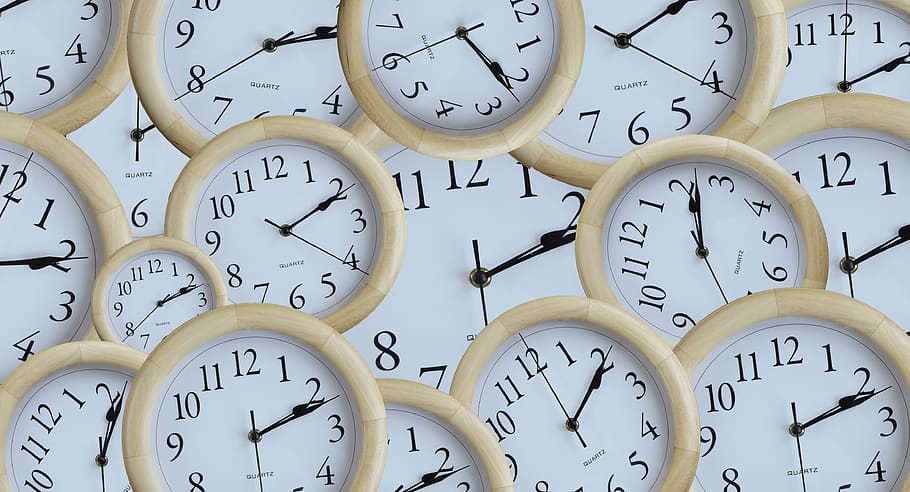As of writing this blog post, I have caught a bit of a cold. Days like these are marked by an increase of screen time in order to fight the sense of boredom, however now justified by just the right amount of self pity. It is only because I know in this state I will not be do anything more productive, or “worthwhile” with my time that I scroll the day away, and landed upon a YouTube video about a guy undertaking the challenge of only using technology from the 80s for a week. One line from his video that stuck with me was: “Im sad, I don’t wanna leave the 80s. It’s just been like, no notifications and pizza.” A witty and trivial line perchance, but there’s a melancholic undertone to it. Debussy’s Clair de Lune playing in the background nourishing this feeling. As the video ends, the viewer is left with a sense of nostalgia when confronted with the dependency on modern technology. A day in the digital, how does it affect us? More specifically, how does it affect how we impose notions of worth upon time spent inside or outside the digital realm?

A common counter argument when observing the effect of daily digital media in our lives is that what actually matters is examining individual’s usage and attitude towards digital media, as compared to studying the general effects of the medium itself. Philosopher McLuhan however argues the following:
“personal and social consequences of any medium– that is, of any extension of ourselves — result from the new scale that is introduced into our affairs by each extension of ourselves, or by any new technology.”
McLuhan, Marshall, Quentin Fiore, and Jerome Agel. 2001. The Medium Is the Message. p.8
Is promethean responsibility called upon us, now that we are able to extend our social and cultural spheres beyond the directly visible and physical? Within seconds we are able to summon direct digital contact with anyone, no longer bound by the inefficiency of distance or the uncertainty of intermediaries. The advantages are clear, yet let us address the less fortunate consequences of this new order. Specifically how it affects how we place notions of “worth” upon “time”.
One of them is the loss of anticipation. Before being able to directly contact anyone anywhere, you had to wait. You had to anticipate. Whether it regards writing and waiting for written letters, or travelling to meet up with someone instead of it being replaced by digital rendezvous. There is less space and incentive for excitement to accumulate before you establish emotional connections. Anticipation affects impressions of worth. When you have had time to build anticipation, the time spent in social contact is likely to be interpreted as more worthwhile or special.
A different disadvantage is the abundance of content, yet a declining focus on absorbing it. We are bombarded daily with miscellaneous stimuli, but how much of it are we actively trying to store to aid us in the future? One effect of this abundance is a broader scope of relativisation. We have more reference points to judge things by. We draw more comparisons, yet we uphold higher standards. There is always someone on the internet who does something better than you. Don’t we then have to do more to regain the same worth with the time we have? Yet we often then spend it online solely upholding our anxiety. We spend our time in the digital realm anxious about how it could have been spent more worthwhile in order to uphold unrealistic digital expectations. Time is simply worth more the less time we spent in pursuance of its worth.

McLuhan further states:
“If the criminal appears as a nonconformist who is unable to meet the demand of technology that we behave in uniform and continuous patterns, literate man is quite inclined to see others who cannot conform as somewhat pathetic”
McLuhan, Marshall, Quentin Fiore, and Jerome Agel. 2001. The Medium Is the Message. p.17
People who are not on social media are quick to be judged for being outmoded, yet are we not imposing our insecurities of constant anxious comparisons and doubts of spending our time in a way that’s more worthwhile, projecting upon them? Homogenous direction of the order of belonging to a new digital social order undermines and eliminates conceptualisations of worth as deemed superficial. For it is the great digital age, where we can learn so much, see much more, feel much more, all with a single click! Right? How I view it, we are neglecting the Sisyphean cramming of uniform scales of time with excessive stimulation, as to escape boredom. Being grounded in a baseline allows us to more effectively categorise and organise our lives through the lens of temporal worth. What I mean with this is knowing what really is worth pursuing, free from constant intercontinental comparisons brought about by immediate digital social contact. Spending more time in conscious inward reflection than a perpetual outward chase might help us recalibrate our notions of time and its worth. Sounds worth it to me!


Recent Comments